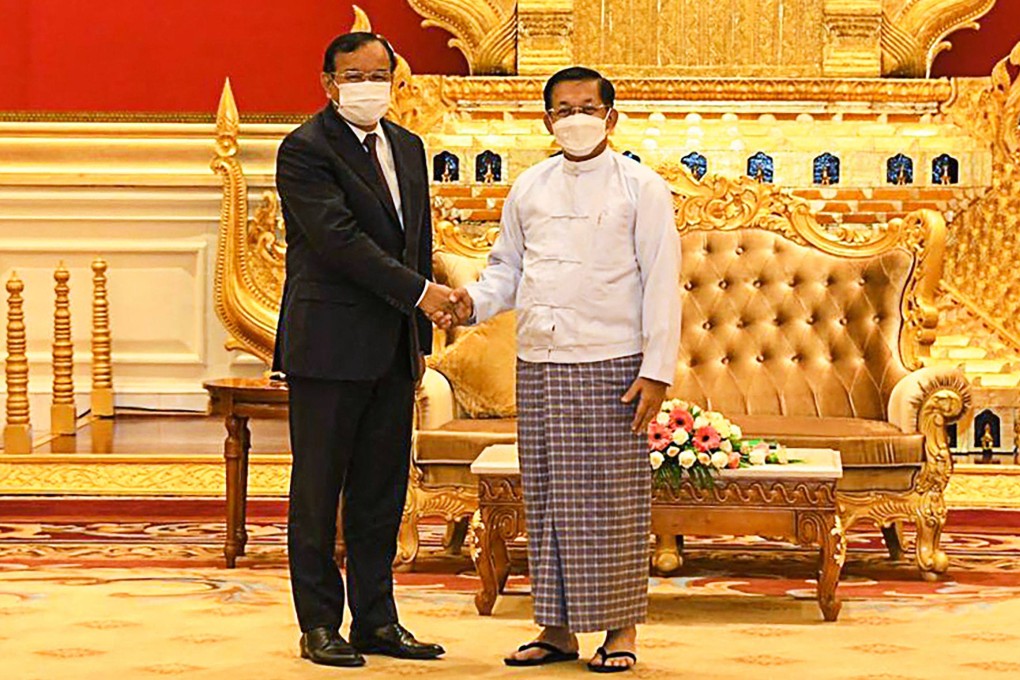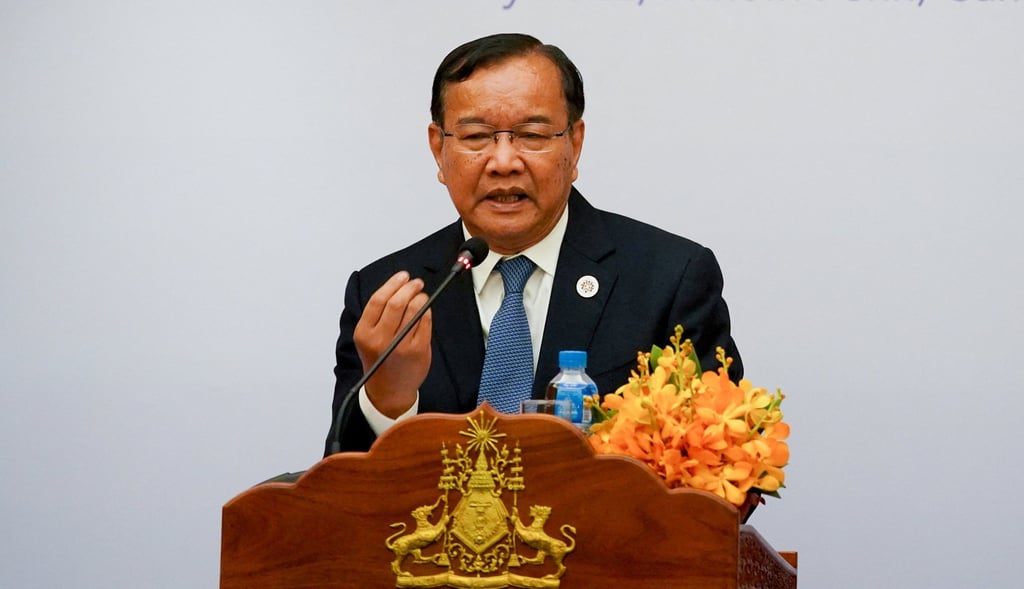Advertisement
As Asean envoy wraps up first Myanmar visit, is the Five Point Consensus looking less viable?
- Prak Sokhonn did not meet Aung San Suu Kyi or other representatives of the ousted government on his first official mission to the crisis-hit country
- While analysts say his visit strengthened the junta’s hand by affirming their version of the implementation process, tougher global sanctions may yet weaken the military network
Reading Time:4 minutes
Why you can trust SCMP

In Prak Sokhonn’s three-day visit to Myanmar this week, the special envoy for the Association of Southeast Asian Nations (Asean) did not meet any representatives of the ousted government on his first official mission to the crisis-hit country.
The envoy, tasked with quelling violence in Myanmar, held talks with armed forces chief Min Aung Hlaing, who seized power in a coup in February 2021, and met ministers appointed by the ruling State Administration Council.
That despite a statement by the National Unity Government (NUG) – or the elected government in exile – calling on Prak Sokhonn, who is also Cambodia’s deputy prime minister, to also meet its leader Aung San Suu Kyi. Prak Sokhonn said he was told by the junta chief that there would be no access to the ousted former elected leader while her trial was ongoing, but would consider a request to see Suu Kyi and other detainees in future.

The controversial trip, which prompted nationwide protests in Myanmar, took place amid widespread criticism that the junta did not meet its obligations under Asean’s Five-Point Consensus, and the United States government’s formal declaration this week that violence committed by Myanmar’s military against the Rohingya minority amounted to genocide and crimes against humanity.
Advertisement
While these moves appear to put pressure on Myanmar’s military government, analysts say tougher measures such as further sanctions on the country’s largest oil and gas company, and even a total worldwide arms embargo, will be needed to compel the junta to change course.
Sanctions on the entire military network, including business and religious cronies of the junta, should also be imposed, at least one expert suggested.
Before Prak Sokhonn’s trip, the Asean Parliamentarians for Human Rights said that the visit, which came without any conditions or demands on the junta to meet its obligations under the Five Point Consensus, was a betrayal of the collective decision of Asean and the will of Myanmar’s people.
Advertisement
Select Voice
Choose your listening speed
Get through articles 2x faster
1.25x
250 WPM
Slow
Average
Fast
1.25x